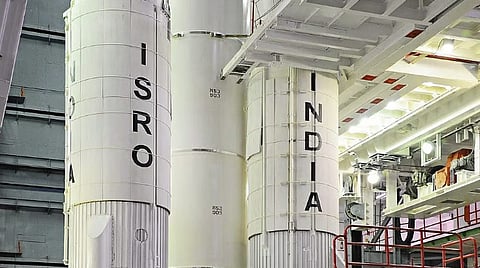

BENGALURU: Indian Space Research Organisation (ISRO) is set to launch PSLV-C61/ EOS-09 satellite from Satish Dhawan Space Centre in Shriharikotta on May 18 at 5.59 am. It is the 101st satellite by ISRO.
The satellite, designed to see through clouds and darkness in the night sky, is a boost to India's satellite-based surveillance capability. This launch follows the India-Pakistan ceasefire after 'Operation Sindoor', and as New Delhi stays alert despite calm along the borders.
The "spy" satellite is designed by ISRO's UR Rao Satellite Center in Bengaluru. The C-band synthetic aperture radar enables the satellite to capture high-resolution images of the Earth's surface and will be better than the Cartosat-3 satellite, which gets blinded at night.
Cartosat-3 satellite could only beam down images with a resolution of less than half a meter from its low Earth Orbit.
India has around 57 satellites in space, including four radar satellites in orbit.
The radar satellites were used to keep a watch on the borders after tensions rose between India and Pakistan following the Pahalgam terror attack.
Under the mission the scientists will place the all-weather earth observation satellite into the sun-synchronous polar orbit (SPO).
The PSLV-C61 is also the 63rd flight of the Polar Satellite Launch Vehicle (PSLV) and the 27th using the PSLV-XL configuration.
According to information shared by ISRO, the launch vehicle is 44.5 metres tall and has a lift-off mass of 321 tonnes. It is the heaviest satellite ever built by ISRO, and it signifies that there are more to come in the times ahead, especially where India is working on Gaganyaan, Chandrayaan-5 and Mangalyaan.
The launch mass of the entire satellite is 1696.24 kg and will be stationed over 500 kilometres above Earth's surface. It has a life of five years and sufficient fuel for deorbiting and post-mission disposal.
"After EOS-09 is deployed, Orbit Change Thrusters (OCT) will be used to reduce the altitude of the PS4 stage, followed by passivation to limit its orbital life — a step aligned with responsible space operations. The EOS-09 is designed to provide continuous and reliable remote sensing data for operational applications across various sectors," said ISRO in a release here.
According to NDTV report, ISRO Chairman Dr V Narayanan said that around 10 satellites are working round-the-clock to ensure the security of country.
The satellites would help to monitor the 7,000 km seashore areas and the borders of the northern part of the country.
"Precision, teamwork and engineering powers India's space ambitions," said Union Minister for Space and Technology Dr Jitendra Singh.
(With inputs from Online Desk)